MOT
New - Relive six months of cross-border news with the retrospective brochure of the newsletter
July 2022Every six months, the MOT newsletter "Cross-border news" is published in the form of a retrospective brochure in PDF format.
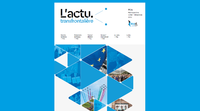
Every six months, the MOT newsletter "Cross-border news" is published in the form of a retrospective brochure in PDF format.
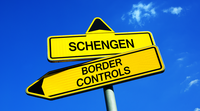
The European Commission has not scrutinised enough the challenges that the COVID-19 pandemic posed to the right of free movement of people. This is the overall conclusion of a special report published on 13 June 2022 by the European Court of Auditors (ECA).
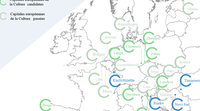
What do Lille, Esch-sur-Alzette (LU), Nova Gorica (SI), Timișoara (RO), Mons (BE) and Novi Sad (SRB) have in common?

The agreement between Switzerland and France on the taxation of cross-border workers has been extended until 31 October 2022.

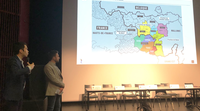
An initial Franco-Belgian steering committee on the Val de Sambre and the cross-border territory around the conurbations of Mons, Maubeuge and Charleroi took place on Friday 1 July at the Jeumont digital station.
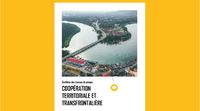
Within the framework of the 11th World Urban Forum, which took place in Katowice on 26-30 June, the PFVT (the French platform for urban development internationally) has published 14 booklets produced by all of the stakeholders involved in the French partnership during an intensive period of work in 2021.
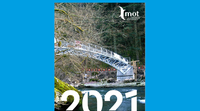

In January, the Conseil départemental des Pyrénées-Atlantiques and the Diputación Foral de Gipuzkoa launched a new experiment: a joint participatory budget, called ideaiak, to encourage inhabitants to develop projects that create links between the two territories.

The call for proposals was launched at the "ConnectingEurope Days" in Lyon on 30 June.

At the invitation of CESCI and Initiatives France Central and Eastern Europe, the MOT took part on 9 June of the Oradea Process, a series of meetings and seminars aimed at developing cross-border initiatives on the Romanian-Hungarian border.

The Interreg France-Switzerland VI 2021-2027 programme was officially launched at an event in Arc-et-Senans (Doubs) on 9 June 2022.

What is the role of border areas with respect to European citizenship? How do local players respond to hosting displaced people in their territory? These are three questions that Chantal Jouanno, Gaëtane Ricard-Nihoul and María Ángeles Elorza Zubiría, all speakers at the forthcoming Borders Forum, will attempt to answer.
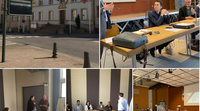
Close to the Franco-German and Franco-Luxembourg borders, Bouzonville and Sierck-les-Bains are drawing up their cross-border goals with the help of the MOT.

Summary of the conference held on 24-25 May by CESCI, in partnership with the MOT and the French Institute in Budapest.


Focus on two border initiatives at the heart of the European project.

At the invitation of the Lille-Kortrijk-Tournai Eurometropolis Agency, the MOT went to Tournai on 25 May 2022 to take part in the launch of the first “European Citizens’ Space”.

On 30 May, the MOT co-ran a webinar offered by the Observatory on the Territorial Impacts of the Crisis (OITC) focusing specifically on border territories.
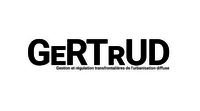
The MOT is a partner in the research project GeRTrUD – Gestion et régulation transfrontalière de l’urbanisation diffuse (Cross-border management and regulation of scattered urbanisation).
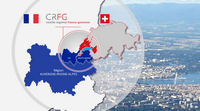
On 12 May 2022, a meeting of Greater Geneva’s political body for cooperation, the Franco-Geneva Regional Committee, which brings together local elected representatives and decentralised authorities from both sides of the border, met in Geneva.

Sandro Gozi, MEP, Jean de Béthune, President of the Lille-Kortrijk-Tournai Eurometropolis, and Christoph Schnaudigel, President of the PAMINA Eurodistrict, talk to us about governance – a crucial subject at the centre of the second day of the Borders Forum. Register now as places are limited! You can also access the event's press kit.

Supported by ten of its members, the MOT is publishing this month its first multi-partner study on cross-border teleworking and its impacts in terms of co-development. It is the fruit of nearly a year of work.

On 12 April, France’s Economic, Social and Environmental Council adopted an opinion entitled “How to construct a Europe of healthcare”. It sets out 17 recommendations to establish as a political priority on the agenda of European bodies and countries “the construction of a Europe of Healthcare, based on a single model, in line with Europe’s values and tailored to the needs of citizens”.
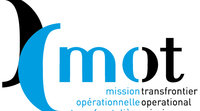
Between late April and early May, three important topics for cross-border territories were the subject of discussions for the network’s working groups: the impact of cross-border projects on the environment; the issue of social security with respect to cross-border employment; and the definition and recognition of “cross-border living areas”. Below is a preliminary summary of the discussions.